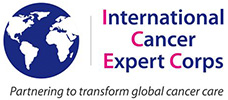Dr. C. Norman Coleman’s Remarks Delivered at Ellen Lewis Stovall’s Memorial Service
During my first clinical rotation at Yale Med School in 1968 I helped care for a young woman with a cough dying of advancing Hodgkin’s disease. It was largely an incurable disease. Medical oncology wasn’t yet a specialty, radiation oncology was part of diagnostic imaging and the few available cancer drugs were given by hematologists, surgeons and radiation oncologists. Over the next five years, advances in Hodgins treatment in chemotherapy from the National Cancer Institute and radiation oncology at Stanford – were stunning. Ellen was at the leading edge of those cured of Hodgkins Disease. Cure came at a price- the long term toxicity of treatment- but Ellen knew that had she been diagnosed just a few years earlier her last 35 to 40 or so years may never have happened. She was always grateful and never complained about the complications.
By and large, progress in science and medicine comes about from important but incremental advances. But in one’s life there are times of an extraordinary need that isn’t met because no one recognizes it. Ellen Stovall transformed how cancer patients interacted with the healthcare system- all aspects of it from the explanation of the disease and treatment, to participatory care, to informed consent, to quality of care assessment, to research, to policy, and to economics– all with a patient focus and all with great humanity. She was a prime creator of an entire new field- the cancer survivorship movement. Fitzhugh Mullin a co-creator of the National Coalition for Cancer Survivorship and colleague is here today. Her remarkable accomplishments have been detailed in the tributes to her, so here are some thoughts about Ellen the person and friend.
I met and worked with her on a report that was completed in 1994 Cancer at the Crossroads: A Report to Congress for the Nation where she represented the newly emerging survivorship community. It was at the first meeting that I had an overwhelming experience. It was life-changing to me for what it was and the void it filled. In the battles in healthcare- reimbursement, research grants, publications, career advancement, patient referrals and such – I had actually forgotten that altruism existed. And, there was this cancer survivor who was altruistic. It was this Report that proposed the new strategic sequence of first, patients, second translational research and third, critical basic research.
I love Ellen’s self-descriptions. Ellen viewed herself as “a housewife from Silver Spring”. What a housewife! -She was enabled and supported by her fantastic husband John, without whom her accomplishments would not be possible, and by her son Jonathan and his wife Brianna who she adored- it is easy to see why. Being among their circle of friends is priceless.
Ellen said that she spoke truth to power. Yes, but she did a lot more than that. With an extraordinarily perceptive mind she also spoke education to those who may have been ignorant of issues, she spoke of the importance of kindness to those running healthcare systems that were mercantile in orientation, she spoke urgency to those who preferred to dither, she spoke service -to-others to those who might have otherwise put themselves first, she spoke humility to hubris, and spoke powerfully to those who might take non-medical professionals in a condescending manner. She listened as powerfully as she spoke and she sought common ground, as long as it wasn’t just a put-off or diversion from real progress.
At this point Ellen would get up, roll her eyes and say “enough about me”. One of my favorite terms I learned from her was that when a group of survivors would get together and talk about their problems she would wait about five minutes and announce: “Okay, the Organ Recital is over! Let’s get down to work!”
I came back to Washington in large measure to work with her. As she continued to support the mission of NCCS she worked with a number of us in the nascent International Cancer Expert Corps to reach across the huge gap in cancer care for the millions of underserved globally. Ellen would undoubtedly be embarrassed by the accolades and she would focus us on filling the pressing needs. She would expect nothing less of us than to do our best to expand the effort for quality care, apply advances in knowledge to all people, and accelerate progress through research.
We will greatly miss her friendship, advice, insight, integrity, wisdom, compassion, clarity, and presence. Ellen Stovall lives. Ellen lives within the hundreds of thousands to millions of patients and families who have benefitted and will benefit from the survivorship movement she helped put into play We will not- we would dare not- drop the mission and charge she gave us to make life better for people with cancer and all who are impacted by it. We are fortunate to have Ellen as an ongoing reminder to focus on what matters and to serve as an example of how to live a truly rich and fulfilled life.
Norman Coleman
January 10, 2016
Honesdale, PA

